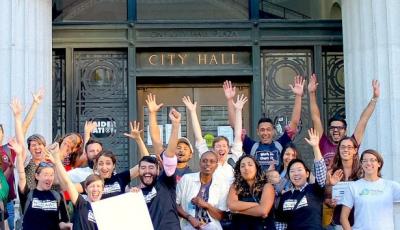
[C]onspicuously missing in this space is the labor movement. Indeed, there appeared to be a general lack of discussion at the CommonBound conference on traditional workplace organizing, with topics more oriented toward community organizing projects. Moreover, since many members in the NEC operate within a worker cooperative political perspective, this is at odds with mainstream labor goals, which seek to bargain with private and public sector employers for better conditions for workers. Even for the left-wing of labor, the political framework tends to be less prefigurative and more doctrinally socialist and oriented toward organizing workers into militant unions and left parties that can vie for state power or conduct general strikes to stop capitalist production. Indeed the traditional labor critique of new economy work would be that these are small scale efforts that capitalism can easily accommodate. It certainly remains to be seen if these projects can develop into a significant challenge or alternative to the system.
Ironically, the new economy framework was fairly mainstream thinking in the labor movement of the 19th century. The Knights of Labor of the 1870s focused heavily on cooperative formation as a key union strategy and had a radical vision for a “cooperative commonwealth” where workers would run the economy. However, the movement of unions in a different direction can be traced to the subsequent formation of the more conservative American Federation of Labor. In the face of massive state repression of unions, it turned away from the cooperative commonwealth concept to focus on securing the rights of workers to organize and bargain union contracts. John Curl, in his excellent book “For All the People: Uncovering the Hidden History of Cooperation, Cooperative Movements, and Communalism in America,” describes how unions came to associate cooperatives with risky, utopian radicalism. They also worried that cooperatives obscured the roles of employer and worker, thus complicating the union’s identity as the bargaining agent for a contract.
Read the rest at Waging Nonviolence
Go to the GEO front page

Add new comment